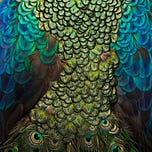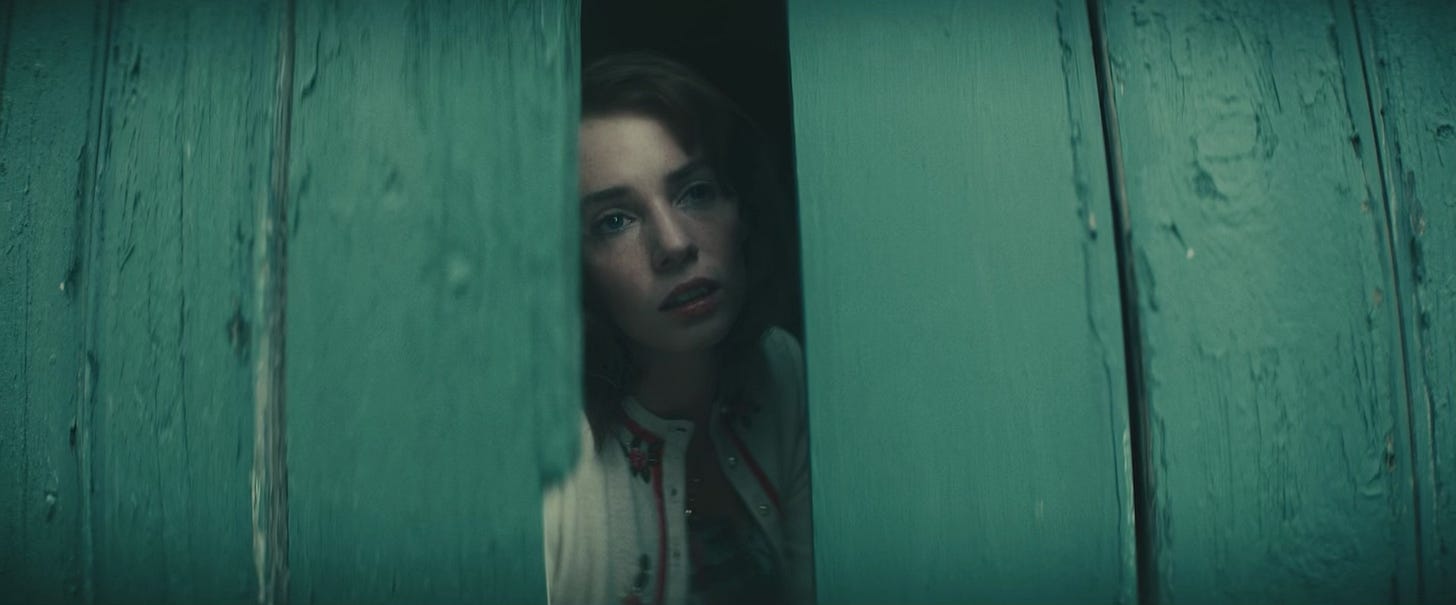Last week I suggested a biopic called Wildcat, based on the brief life of the American writer Flannery O'Connor and the extraordinary work she was able to write before lupus, a chronic and complex autoimmune disease, the same one that her father suffered from and that left her half-orphaned at the age of 15, took her at the age of 39. In circumstances such as those described, it is by no means accidental that her work is imbued with a premature spirituality.
I, during my thirties, was free of family obligations that stressed me, in excess of health and privileged with a bohemian existence, the only spirituality that worried me was that of some medieval characters that I was writing at the time.
I remember that in order to give play to the medieval characters, The Chronicler's Chant—a recreation of the historical Jehan Le Bel and Jean Froissart—had to be extended in the wrath of God, which in that historical period was absolutely awful. That is the four horsemen of the Apocalypse doped with immense fury, spreading plague, war, hunger, and death in equal parts.
However, The Jongleur’s Chant was the counterpoint, the grace of God, as if it were a magical courage that made him invulnerable to the bloody splashes of the massacres of that fateful year of 1358, the year of the genuine French Revolution, later minimized as a peasant revolt, although the shock wave reached all the countries and city-states of Europe.
Both wrath and grace of God were then woven together like a woolen thread in the newly brought from the East spinning wheel in The Spinner’s Chant. Set among the Beguines, the first religious women, free from the marriage yoke, tireless workers both with wool and silk and the helpless. Among the most famous Beguines, Marguerite Porete, condemned to the stake by the Inquisition in 1310, whose The Mirror of Simple Souls is one of the masterpieces of mysticism, which transcends each and every one of the religions and cultures—Western and Eastern—to lose itself in poetry and philosophy.
Having told my experience with the medieval concept of grace, I would like to return to Mary Flannery, as her patient mother Regina called her. As I am naturally curious, I was rereading the author's work and then I became interested in how Ethan Hawke—director and screenwriter of Wildcat—understood it, given that the biopic is not based on the hackneyed structure of the rise and fall of a cultural icon, but intertwines her life with her short stories.
That's how I was entertained by a long interview on YouTube by Bishop Robert Barron with Ethan Hawke and Maya Hawke, the nepobaby daughter of Uma Thurman who plays Mary Flannery and her various alter egos.
To my surprise and bewilderment, there was grace again, the same grace that I had reduced to the magical courage of the mythical Greek hero Achilles.
At first, I thought of the typical flattering interviews that end up boring due to the accumulation of compliments and cheap psychology. But it turns out that they were three fans of Mary Flannery, the three profound connoisseurs of her work, delighted to illustrate all the ins and outs, even the most abstruse of concepts such as grace, distilled with exquisite elegance in the short story Good Country People that is also recreated in the film in question.
And this is where I was extremely intrigued when Ethan Hawke quotes Mary Flannery's letters. “This notion that grace is healing omits the fact that before it heals, it cuts with the sword Christ said he came to bring.” And then “All human nature vigorously resists grace because grace changes us and the change is painful.”
In other words, or at least that's how I understand it, grace is a kind of courage that we involuntarily acquire in each of the debacles of our stupid and insignificant lives that fill us with humility... Until foolish pride deprives us of that perspective again and we immediately return to cheat at solitaire, what can you do!
It’s obvious that since I master the sublime art of deceit—it’s called fiction—also practiced by organized religions, all based on the Monomyth that Joseph Campbell described in detail in The Hero with a Thousand Faces, I understand the concept, it is familiar to me, but I do not buy it.
That idea of a God interested in our troubles is ridiculous, as ridiculous as children who invent an imaginary friend to shake off loneliness and fear.
I understand better why Mary Flannery's characters had that comic part, despite the disasters they faced, which also reminds me of Russian playwright and short-story writer Anton Pavlovich Chekhov.
She wrote, “If I were to live long enough and develop as an artist to the proper extent, I would like to write a comic novel about a woman-and what is more comic and terrible than the angular intellectual proud woman approaching God inch by inch with ground teeth?”














Share this post